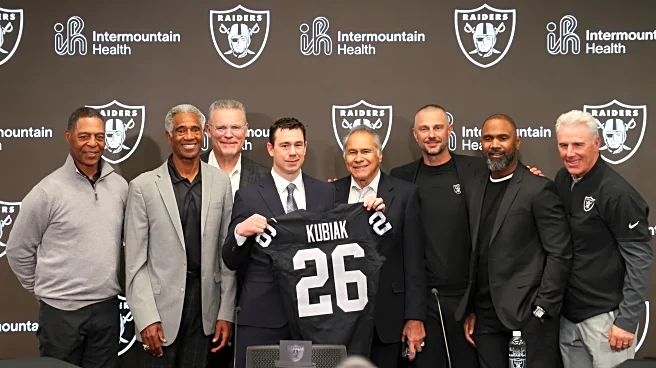What's Happening?
President Trump is showing little urgency to broker a compromise to end the ongoing government shutdown, despite calls from Democrats for his direct involvement. The shutdown has persisted for three weeks,
with Congress at a standstill. Republican leaders are refusing to negotiate until a short-term funding bill is passed, while Democrats demand guarantees on extending health insurance subsidies. Trump has been focusing on other issues, such as the Israel-Hamas ceasefire and the Russia-Ukraine war, while his administration manages the shutdown by continuing to pay troops and laying off other federal employees. Senate Majority Leader John Thune stated that Trump is ready to engage in talks once the government reopens.
Why It's Important?
The government shutdown has significant implications for federal employees and public services. The lack of progress in negotiations highlights the deep political divide in Congress, affecting public policy and potentially leading to economic disruptions. The shutdown's impact on public opinion remains minimal, but prolonged inaction could lead to increased pressure on both parties. The situation underscores the importance of presidential involvement in resolving legislative impasses, as Trump's leadership style often dictates congressional actions.
What's Next?
The shutdown is expected to continue as both parties remain entrenched in their positions. Democrats are increasingly looking to Trump for leadership, hoping his involvement could break the deadlock. However, Republican leaders resist this push, fearing it could set a precedent for future legislative negotiations. The administration's unilateral actions, such as layoffs and funding shifts, face legal challenges, which could influence the shutdown's trajectory. The situation remains fluid, with potential developments hinging on Trump's willingness to engage directly with congressional leaders.











